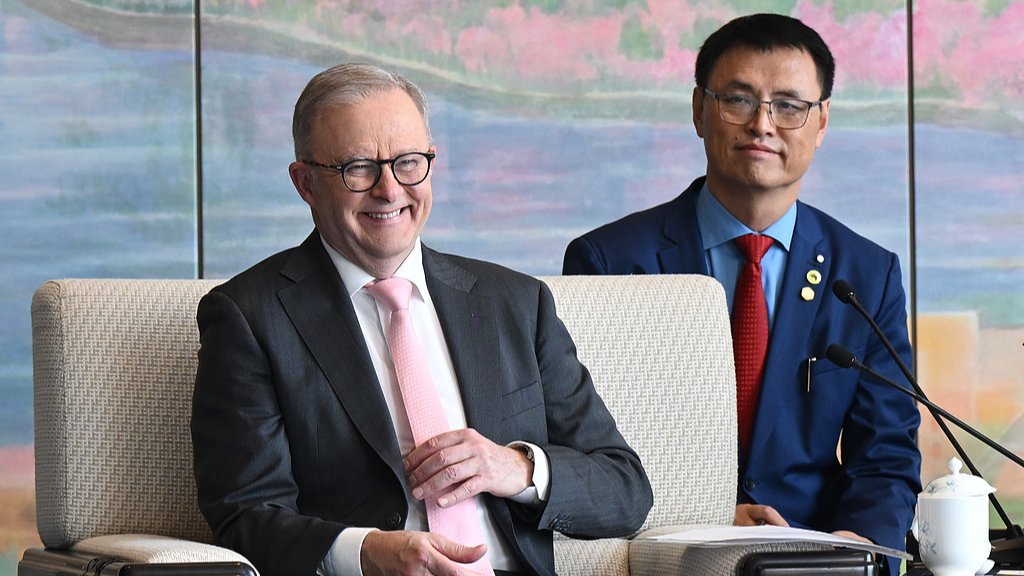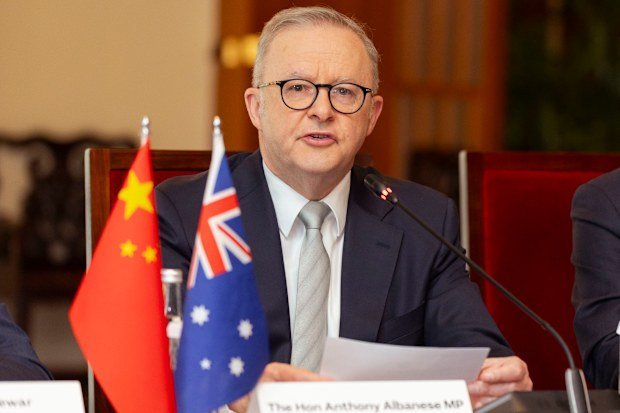Albanese Defies China’s Fury: PM Backs Historic US Deal as Trade Tensions Soar
- Australia’s $13bn critical minerals deal with the US sparks outrage in China, but Albanese remains defiant
- Chinese President Xi Jinping set to meet with US President Donald Trump on Thursday amid heightening trade tensions
- Australian PM hails “good deal” for nation, promising jobs and economic growth in resource extraction and processing
In a bold move, Prime Minister Anthony Albanese has shrugged off concerns that US negotiations with China could threaten Australia’s landmark critical minerals deal, signed last week with President Donald Trump.
Despite China’s tightening of trade rules with the US, Albanese reiterated that the agreement is a “good deal” and an “opportunity for Australians” that will benefit the country for decades to come.
“These rare earths and critical minerals are what will power the global economy this century,” Albanese said in a press conference in Kuala Lumpur, where he is attending the ASEAN summit.
“And just as Australia has benefited from resources in the last century, such as iron ore, that will continue … but we need to diversify where we get that economic growth and activity from.”

The alliance with the US is a key pillar of Australia’s foreign policy, Albanese stressed, highlighting “significant advances” made on the AUKUS deal, a trilateral defence pact involving Australia, the US, and the United Kingdom.
However, when asked about Japan’s potential inclusion in the pact, following a warm meeting between the leaders of Australia and Japan, Albanese remained tight-lipped.
“The meeting I had with the new Japanese Prime Minister was very positive and constructive. I’ll see her again – she will be at APEC, she has invited me to come to Japan,” he said.
Australian PM Anthony Albanese met with Japanese leader Sanae Takaichi this week, hailing their discussion as “very positive and constructive.”
The visit to Malaysia marks the final leg of Albanese’s meeting with regional leaders in South East Asia, a week after blindsiding China with the historic critical minerals deal.
In a significant development, Australia’s purchase of Mogami-class stealth ships from Japan was also hailed as an “important” investment in the relationship between the two countries.
“That process, as well, is a separate one where we not only will be purchasing frigates, we’ll be producing frigates as well, in Western Australia, with the support and know-how of our friends in Japan,” Albanese said.
Further engagement with the Indo-Pacific region and support for multilateral forums were also highlighted by Albanese as crucial elements of Australia’s foreign policy.
“That’s why this positive engagement is so important,” he said. “The fifth Australia-ASEAN summit this afternoon will be an opportunity for that.”
Australia’s relationship with ASEAN, or the Association of Southeast Asian Nations, is critical, with the region representing one of Australia’s key trading and diplomatic partners in the wider Indo-Pacific.

